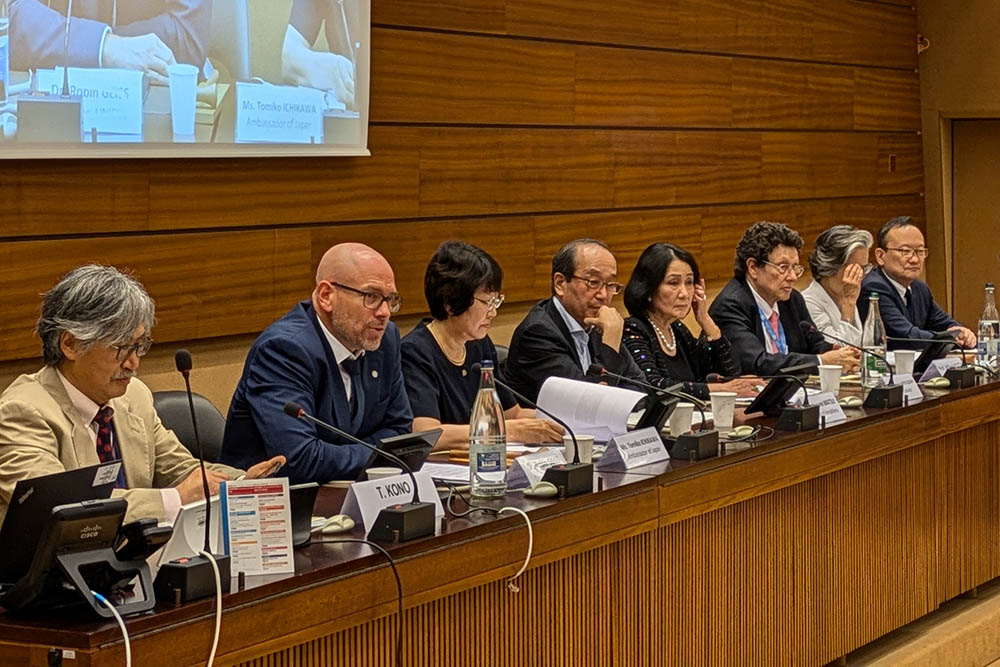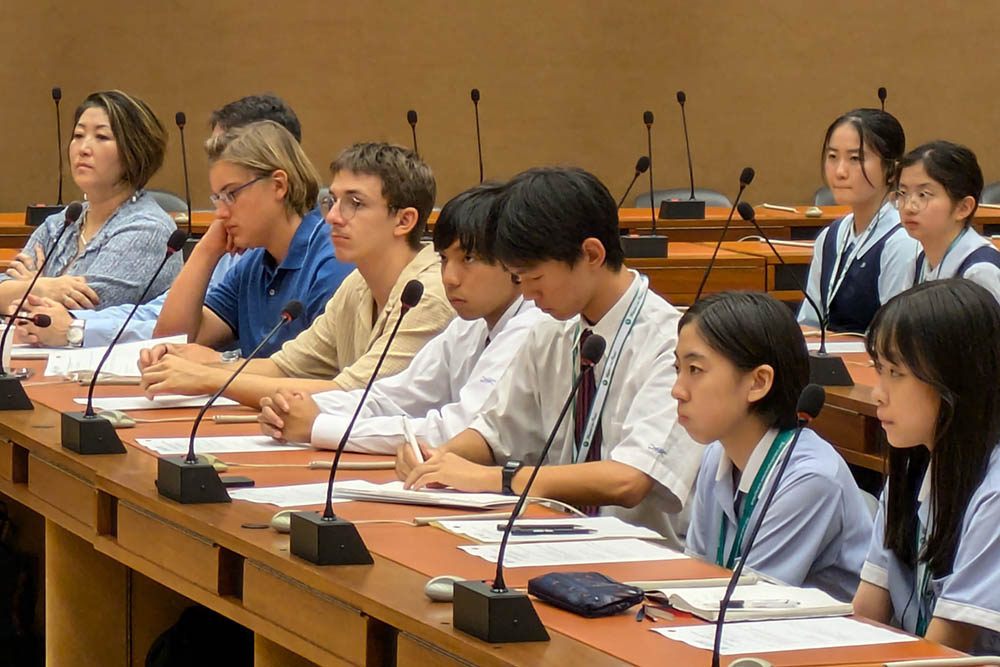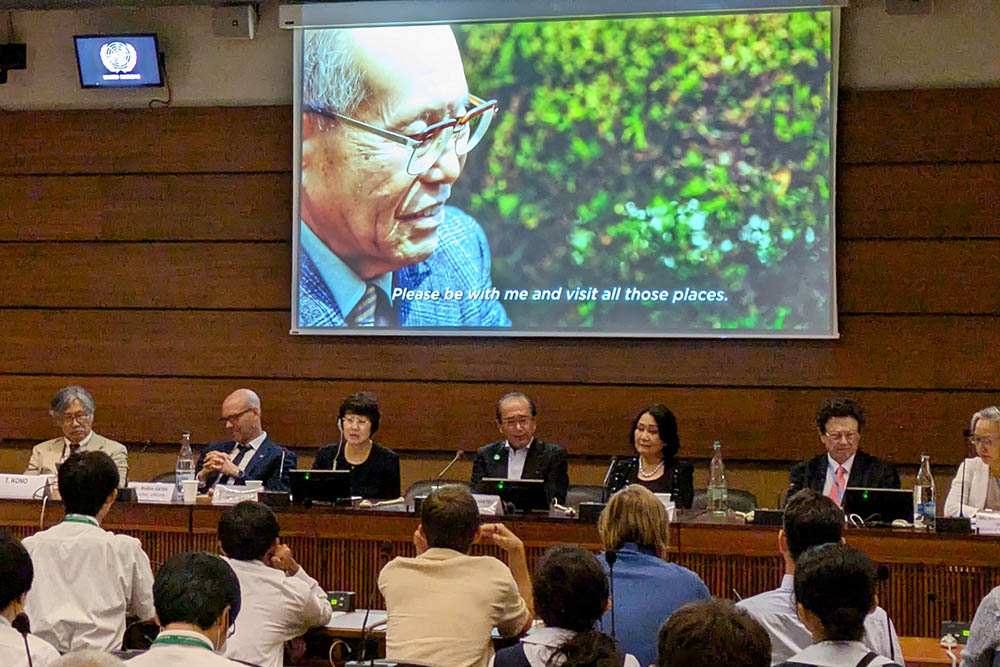On 23 July 2024, the United Nations Institute for Disarmament Research (UNIDIR) and the Delegation of Japan to the Conference on Disarmament came together to host a screening of the documentary Paper Lanterns, the story of twelve American prisoners of war killed in the atomic bombing of Hiroshima and of Shigeaki Mori, the Japanese man who refused to let them be forgotten.
Taking place on the margins of the Preparatory Committee of the 2026 Review Conference of the Treaty on the Non-Proliferation of Nuclear Weapons in Geneva, the event featured contributions from the Mayor of Hiroshima, Japan’s Representative to the Conference on Disarmament, the Director of UNIDIR, renowned experts in the field, and many of those directly involved in the making of the film, including both its director and its central protagonist.
Paper Lanterns recounts the tireless efforts of Mr. Mori, himself a Hiroshima survivor, first to identify the Americans that had perished in the bombing, then to track down their families in the United States so as to provide them with a degree of closure regarding the fate of their relatives. It shows how the common humanity of these one-time adversaries has ultimately prevailed, with American family members visiting Japan to meet Mr. Mori, to learn about the devastation wrought by the bombing, and to understand what became of their loved ones in their final days.

Opening the event, UNIDIR Director Robin Geiss highlighted the importance of remembering the experiences of survivors not just as personal or national tragedies, but also as global lessons that must push us towards practical steps that can prevent such horrors from recurring. H.E. Ms. Tomiko Ichikawa, Permanent Representative of Japan to the Conference on Disarmament, echoed this sentiment, noting the particular signifiance of the film’s message in light of the ongoing negotiations around the Treaty on the Non-Proliferation of Nuclear Weapons (NPT).
Hiroshima Mayor Kazumi Matsui, who also serves as President of the 8500-strong Mayors for Peace network, expressed his solemn hope that future generations would not repeat the tragic history in this inspiring film, as no one else should suffer the same horrors as the people of Hiroshima and Nagasaki did. The film’s co-producer, Nobuko Saito Cleary, emphasised that the compassion shown by Mr. Mori provides hope for future generations, who will need to turn away from the easy task of building walls and instead take up the difficult work of building bridges.

The audience in Geneva, which also included student groups from Hiroshima and Nagasaki, were then able to hear from Mr. Mori himself, thanks to a special video message in which he recounted his own experience of the bombing, his mission to commemorate the death of the American POWs, and the imperative that we all share to prevent future use of nuclear weapons. The film’s director, Barry Frechette, also addressed the audience by video message, expressing his hope that Mr. Mori’s story will continue to spread and resonate across the international community.
Following the film, further analysis was provided by UNIDIR Senior Fellow and highly respected non-proliferation expert William Potter, who underlined that diplomats in the disarmament need to be reminded of this kind of personal story so that they do not slip into a mindset of “business as usual”, instead recognizing the all too real impacts of the issues they cover. Mihoko Kumamoto, Director of UNITAR’s Division for Prosperity, noted the need for empathy, for understanding the perspectives of others, even those seen as adversaries. And rounding off the screening, Tomochika Uyama, Advisor to the Director General of the WTO, challenged us to think about what we are doing personally to make a difference in the way that Mr. Mori has, reminding us that only the collective sum of our individual actions will enable us to achieve and maintain peace in our troubled world.
The power of this story, the timeliness of this event on the margins of the NPT preparatory conference, the involvement of key figures from the making of the film, and the presence of the Mayor of Hiroshima, Japanese student groups, and a raft of other senior figures all combined to make this a particularly momentous occasion, and as such it was reported on at length by Hiroshima Television (report below, in Japanese).
